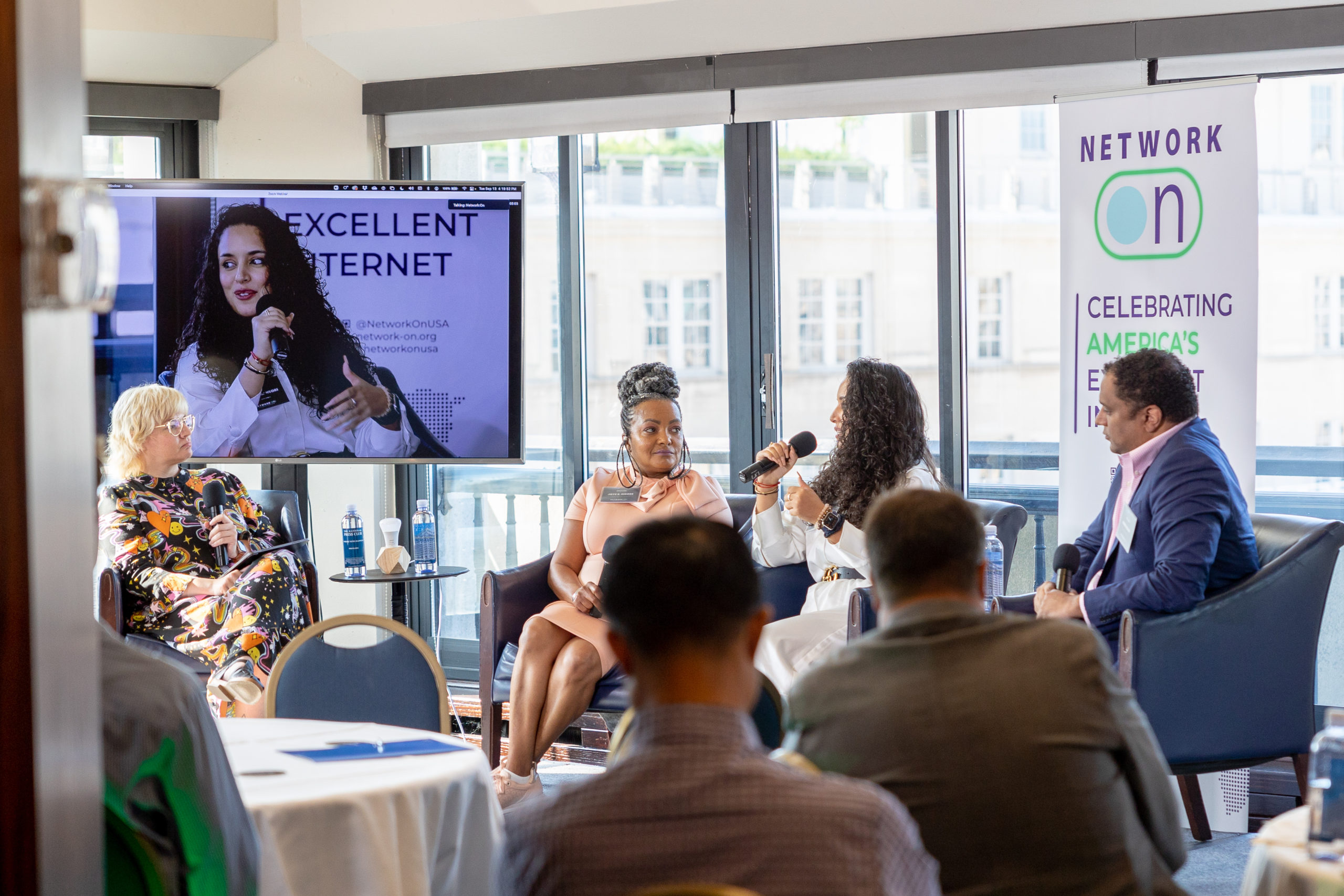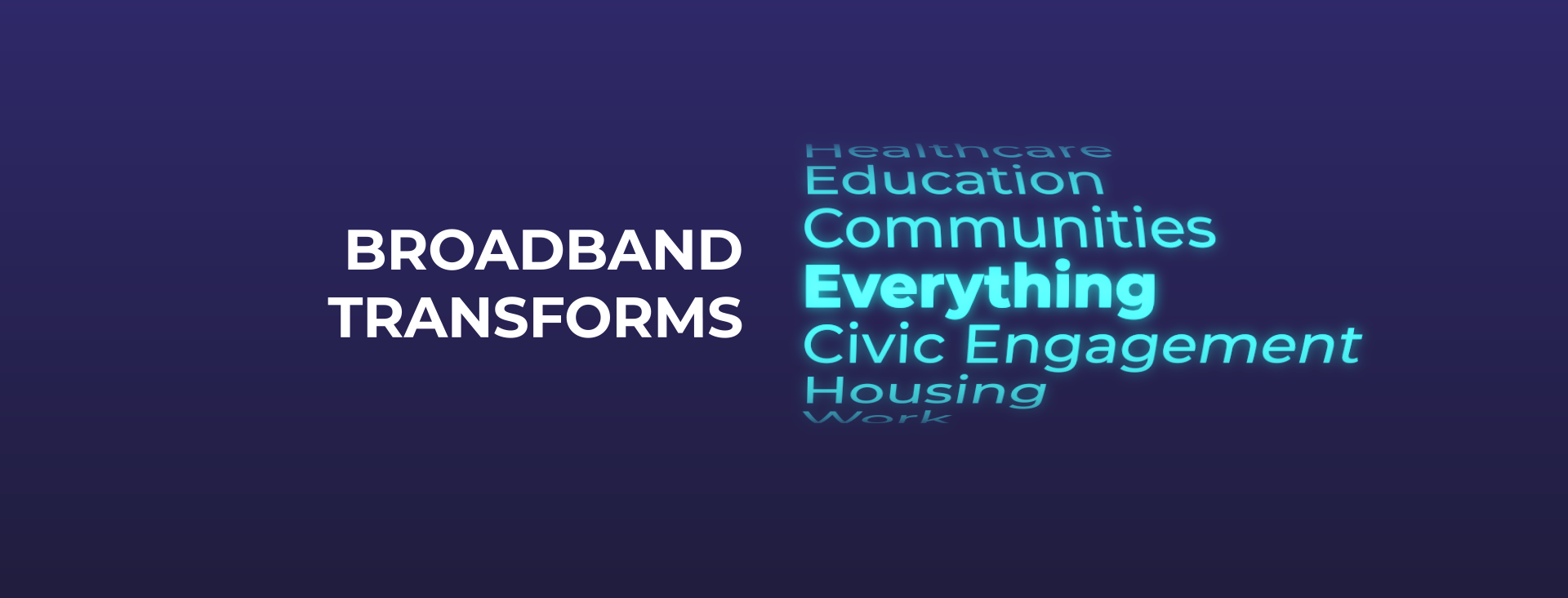Network companies don’t usually get kisses, but Joye B. Moore felt compelled to blow kisses to her network provider during the Network:On Creating Connections conference in Washington DC.
Moore’s company, Joyebelle’s, is an internet success story, but it didn’t start out that way. Like so many American success stories it started with a loss when she was laid off from a job she loved.
She came to see losing that job, not as a failure, but as an opportunity. Moore, the child of an undiagnosed, mentally-ill mother who was sometimes homeless as a teenager and had to scrounge from dumpsters, came to see food as her salvation.
“I think I dropped like two tears,” she said. “Maybe 10 seconds in, something said: This is the perfect opportunity to start that business you always wanted.”
In 2019 she and her family started Joyebelle’s using legacy recipes that were passed down six generations from the family matriarch Susan Mae Howell to Moore.
“My family, they all quit their jobs, and we moved seven-deep into a two bedroom apartment,” she said. “My family volunteered for two years for free to grow Joybelle’s, and in the midst of all that, that’s when the big pivot happened.”
The advent of the pandemic changed so much for all Americans, but for entrepreneurs it created both challenges and opportunities. During the conference she blew multiple kisses to her network provider as she explained how Comcast Rise allowed her family business to go national.
Comcast Rise seeks to allocate $75 million in cash and $25 million in media over three years to fight injustice and inequality against any race, ethnicity, gender identity, sexual orientation or ability.
“The power of the internet; the broadband; the reach — our launch would not have been as impactful – the reach would not have been so effective, if it had not been for broadband internet,” she said. “I have a big mouth, but it’s not that big.”
The internet’s “big mouth” isn’t just for Joyebelle’s pies. Entrepreneurs are finding ways to use the broadband to fill other economic niches.
VetsinTech COO Ikram Mansori is using broadband to incubate entrepreneurial spirit among veterans.
While nearly 50 percent of post-WWII veterans became entrepreneurs, less than five percent of veterans of the post-9/11 era own their own businesses.
“That is absolutely beyond unacceptable,” Mansori said. “Which brings us back to VetsinTech and the opportunity and growth we’ve had during the pandemic because of the internet.”
Pre-pandemic VetsinTech trained about 250 veterans and military spouses a year. Today VetsinTech is training 1,000.
“All because we went virtual,” Mansori explained.
For Care Advisor CEO Chris Grace, broadband allowed him to carve a niche in a healthcare industry dominated by giant corporations.
“Like many other large businesses they struggle with innovation,” he said. “It’s hard for them to think through how you apply innovative solutions and new technologies in ways that aren’t proven.”
Small businesses like Grace’s are wellsprings for innovation that can partner with larger firms in the industry.
“Because you’re one of those new businesses that’s willing to take risks that the leadership at large health plans and hospitals are just not willing to assume,” he said. “You can outsource the risk, outsource the innovation for them, and they can really rely on you as a partner.”




